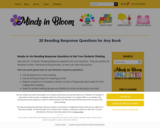
Generic questions to respond to any work of literature.
- Subject:
- English Language Arts
- Material Type:
- Activity/Lab
- Author:
- Rachel Lynette
- Date Added:
- 04/06/2020

Generic questions to respond to any work of literature.

Build number sense...have fun!
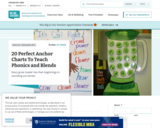
Phonics charts and blends charts are a great way to teach difficult concepts to beginning readers. Keep them around the classroom (or accessible at home), and your students will be able to use them independently for increased confidence and learning!

Some quick and useful ways to bust stress right now!

Check out these fun things that you can do at home with kids of all ages.

"We’ve rounded up the best YouTube workouts — we’re talking everything from traditional aerobics, to ballet, to high-intensity interval training routines — so you can keep your physique in tip-top shape."

A fantastic article for parents and teachers that discusses the power of just 20 minutes a day for reading at home.
This is the best gift you can give your child!
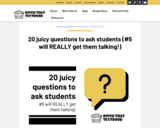
"A great question is a springboard into a fascinating discussion. Phrase it the right way and students will start thinking. Then they'll start talking. Then you won't be able to get them to stop!
Great questions can make the difference between a good learning activity and a great one."
This includes 20 questions as well as many ideas to make your own questions including - student interests, audio, images, video, would you rather, summaries, lists, fantasies, mysteries.

Skip counting is an important skill, one that leads kids naturally into multiplication. Kids can learn to skip count by rote, but they’ll get more value from seeing how the concept relates to real-life math. Try these activities and ideas to help make it happen!
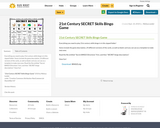
Everything you need to play 21st century skills bingo is in this zipped folder!
Items include the game description, 24 different versions of the cards, as well as blank card you can use as a template to make new ones.
Read the file entitled "Secret BINGO Directions" first, and then "SECRET bingo descriptions"
Have fun!
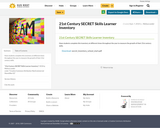
Have students complete this inventory at different times throughout the year to measure the growth of their 21st century skills.

21st Century SECRET Skills Needed for a Career.
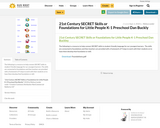
The following is a resource to help connect SECRET skills to student-friendly language for our youngest learners. The skills are connected to foundations and then teachers are provided with a framework of 9 steps to work with their students on to have them develop that foundation or skill.

Use these questions to interview an adult about 21st century skills and teach your students about the value of these skills in life.
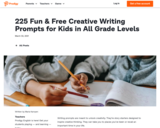
Writing prompts for kids help students:
- Express themselves and their creativity
- Grasp lifelong literacy skills and concepts
- Tell their own stories and build self-confidence
- Develop a growth mindset when it comes to their writing skills
- Writing is like a muscle — it takes practice to build up skills. Luckily, we put together a list of over 200 writing prompts to help your students get started.
Contents include:
- Creative writing prompts
- Fun writing prompts
- Persuasive writing prompts
- Social emotional learning journal prompts
- Math writing prompts

You can get moving and learn some math too!

Help kids practice smart internet habits and stay safe online.
Educators' approach to internet safety in the classroom has changed as technology and our use of it continues to evolve. In the past, digital citizenship lessons on internet safety focused more on dos and don'ts, like do create safe passwords and don't talk to strangers online. While secure passwords are certainly important for technology users of all ages, and stranger danger is nothing to take lightly, most internet safety dilemmas are much more nuanced.
The best internet safety lessons recognize the complexity of these topics and help students build the critical-thinking skills and habits of mind to navigate the dilemmas they encounter. Included are the best internet safety lesson plans for students in grades K–12.

This short video and interactive assessment activity is designed to give fourth graders an overview of 24-hour clocks.

La compréhension de textes narratifs peut poser problème aux élèves sur plusieurs aspects. Parfois, ils peuvent même se sentir submergés par la quantité d’informations, ce qui peut avoir comme conséquence de créer une certaine confusion. Grâce à ces 24 questions à piger, vos élèves pourront réfléchir à un seul élément du récit à la fois.
**pour la 3e - 6e année

There are a variety of ideas for themed charade games for your family game night!